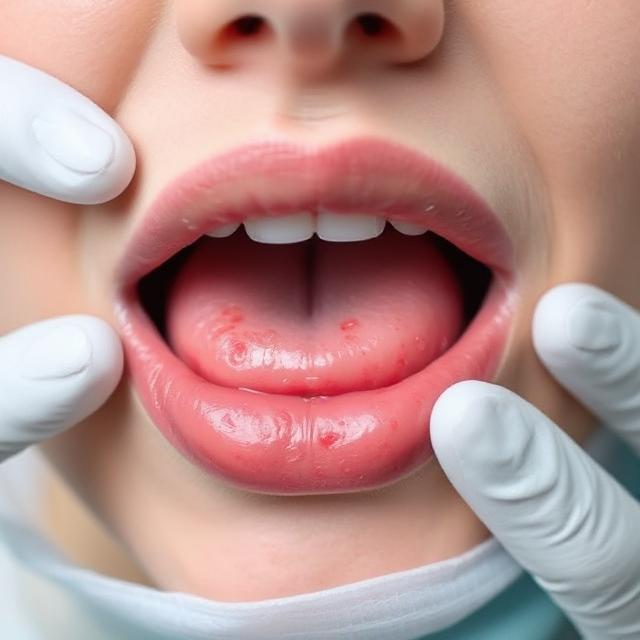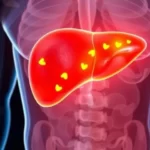Mouth ulcers, also known as canker sores, are small, shallow lesions that develop on the soft tissues inside the mouth, including the cheeks, gums, tongue, and inner lips. Though not contagious, they can be extremely painful and may interfere with basic activities like eating, drinking, and speaking. These ulcers are usually round or oval with a white or yellowish center and a red border, and they can occur as single sores or in clusters.
In homeopathy, mouth ulcers are not just treated as isolated symptoms. Instead, practitioners view them as indicators of underlying systemic imbalances. This personalized, root-cause approach is why homeopathic mouth ulcer treatment is gaining popularity among people seeking gentle and effective relief.
What are Mouth Ulcers?
Mouth ulcers, commonly referred to as canker sores, are painful sores or lesions that develop inside the mouth. These ulcers usually appear on the inner cheeks, gums, tongue, lips, or the roof of the mouth. They are round or oval in shape, have a white or yellowish center, and are often surrounded by a red, inflamed border.
Mouth ulcers are non-contagious and usually heal on their own within 7 to 14 days. However, they can cause significant discomfort, especially when eating, drinking, brushing, or talking.
There are two main types:
- Minor ulcers are small, shallow, and the most common type.
- Major ulcers are deeper, larger, and more painful; they may take longer to heal.
- Herpetiform ulcers appear as clusters of tiny sores that may merge into one large ulcer.
What Are the Symptoms of Mouth Ulcers?
Symptoms can vary depending on the severity and cause, but most people experience:
- A tingling or burning sensation before the ulcer appears
- Pain or discomfort, especially while eating spicy or acidic foods
- A white or gray sore with a red edge
- Swollen and irritated mouth tissue
- In severe cases, fever, sluggishness, and swollen lymph nodes
These ulcers typically heal within one to two weeks; however, frequent or severe outbreaks may indicate a deeper underlying health issue.
What Causes Mouth Ulcers?
There are multiple potential triggers for mouth ulcers, including:
- Stress and anxiety: Emotional stress can weaken the immune system, making the mouth more susceptible to infection.
- Nutritional deficiencies: Lack of iron, folic acid, or vitamin B12 is a common contributor.
- Injury or trauma: Biting your cheek, using hard toothbrushes, or irritation from dental appliances can cause ulcers.
- Food sensitivities: Citrus fruits, spicy foods, and allergens can trigger outbreaks.
- Hormonal fluctuations: Particularly during menstruation or pregnancy.
- Underlying health conditions: Conditions like celiac disease, Crohn’s disease, or immune disorders can manifest as frequent ulcers.
For many, conventional treatments provide only temporary relief. That’s why increasing numbers of people are turning to a homeopathic cure for mouth ulcers, which focuses on healing the root cause of the issue and preventing future occurrences.
Understanding the Homeopathic Approach to Mouth Ulcers
Unlike conventional medicine, which often focuses on topical relief or antiseptic rinses, homeopathy aims to restore internal balance by stimulating the body’s self-healing mechanisms. Remedies are selected based on a comprehensive analysis of both physical symptoms and psychological traits.
Let’s explore how various homeopathic remedies target different ulcer profiles based on these individualized symptoms.
Arsenicum Album
One of the most reliable remedies for ulcers characterized by intense burning pain is Arsenicum Album. Individuals requiring this remedy often experience heightened anxiety and physical exhaustion alongside their mouth sores. They may find temporary comfort in warm beverages, and usually feel better when covered and warm. This profile often includes a predisposition to neatness, a tendency toward perfectionism, and a deep sensitivity to discomfort.
Borax
For those who find even mildly acidic foods, especially citrus, intolerable due to mouth ulcer pain, Borax may be the answer. The sores are often accompanied by a paradox: profuse saliva production, yet a lingering dryness in the mouth. People who benefit from Borax may also exhibit acute sensitivity to external stimuli, such as loud noises or movement, and often display nervous tendencies, including motion sickness.
Calcarea Carbonica
When recurring ulcers afflict infants or small children, particularly those who sweat heavily during sleep or are slow to develop teeth, Calcarea Carbonica becomes a go-to remedy. This treatment is not limited to children; adults who are prone to fatigue, chilliness, and a slower metabolism may also find it beneficial. It’s often prescribed to those with a stocky build and a tendency to catch infections easily.
Hepar Sulphuris Calcareum
When ulcers become infected, forming pus and becoming hypersensitive to even the gentlest touch, Hepar Sulphuris can offer profound relief. These ulcers are worsened by cold air or cold drinks, and individuals tend to feel fragile and easily overwhelmed. A sense of vulnerability and emotional hypersensitivity typically accompanies the physical symptoms.
Mercurius Solubilis
When ulcers are accompanied by excessive salivation, a coated tongue, and a foul smell emanating from the mouth, Mercurius Solubilis may be prescribed. These symptoms often worsen at night, with many patients also reporting night sweats and increased sensitivity to temperature changes. The appearance of the ulcers is usually aggressive, red, and accompanied by bleeding gums.
Natrum Muriaticum
Some people experience ulcers as a physical manifestation of emotional turmoil, particularly grief or suppressed anger. Natrum Muriaticum suits these cases, especially when the ulcers appear pearly and dry, located on the gums or tongue. These individuals often experience dry mouth, tingling sensations, and an insatiable thirst for salty foods. They are also more likely to get cold sores or experience dryness and cracking at the corners of the mouth.
Nux Vomica
When lifestyle choices are to blame—such as excessive consumption of spicy foods, alcohol, or caffeine Nux Vomica is the ideal remedy. Ulcers that follow a period of indulgence, particularly in individuals who are irritable, impatient, and workaholic, often respond well to this treatment. The physical symptoms may include a coated tongue, inflamed gums, and minor bleeding during brushing or eating.
Sulphur
If the ulcers are bright red, burning, and made worse by warm drinks or hot food, Sulphur could be effective. People who need this remedy often complain of a bitter taste in the mouth and feel generally overheated. Sulphur is particularly beneficial for those with a constitutional tendency toward skin irritations or itching, along with dry, cracked lips.
How to Use Homeopathy Safely and Effectively
The correct selection of a homeopathic remedy requires a nuanced understanding of the person’s complete symptom profile. It’s not just about matching a single symptom; instead, the remedy must reflect the individual’s overall emotional and physical state. Therefore, consultation with a trained homeopath is crucial for effective treatment.
Dosages are typically administered in low to medium potencies (6C, 30C), and frequency depends on the severity and recurrence of the symptoms. Self-prescription for short-term relief is possible, but long-standing or frequently recurring ulcers demand professional guidance.
Conclusion
If you’re tired of recurring canker sores and harsh chemical treatments, turning to a homeopathic cure for mouth ulcers could be your best decision. This gentle, holistic approach doesn’t just mask the symptoms; it addresses the root cause, whether it’s dietary imbalance, emotional stress, or constitutional weakness. Each remedy offers a personalized path to healing, tailored to your body’s unique responses and emotional makeup.
Homeopathy has stood the test of time as a dependable and natural medical system, offering a safe and effective treatment for mouth ulcers. By working with a qualified practitioner, you can find the remedy that best aligns with your specific symptoms and finally experience long-term relief.
FAQs
What causes mouth ulcers?
Mouth ulcers can be caused by stress, nutritional deficiencies (such as iron or B12), food allergies, hormonal changes, or minor injuries to the mouth’s lining.
How to cure mouth ulcers on the tongue fast naturally?
Rinse with saltwater, apply aloe vera gel, and avoid spicy or acidic foods. Homeopathic remedies, such as Borax or Natrum Muriaticum, can also accelerate natural healing.
What virus causes mouth sores in adults?
The Herpes Simplex Virus (HSV-1) can cause cold sores, while other viral infections like Coxsackievirus may lead to canker-like ulcers.
How should I treat a mouth ulcer?
Maintain good oral hygiene, avoid irritants, and use natural remedies or homeopathic solutions. For severe pain, over-the-counter gels or lozenges may help.
What’s the fastest way to cure a mouth ulcer?
Using a combination of saltwater rinses, soothing gels, and a suitable homeopathic remedy offers fast, safe relief.
Which ointment is best for mouth ulcers?
Topical gels, such as benzocaine, or natural options like glycerin or honey, work well. For a holistic approach, homeopathy provides internal healing.











